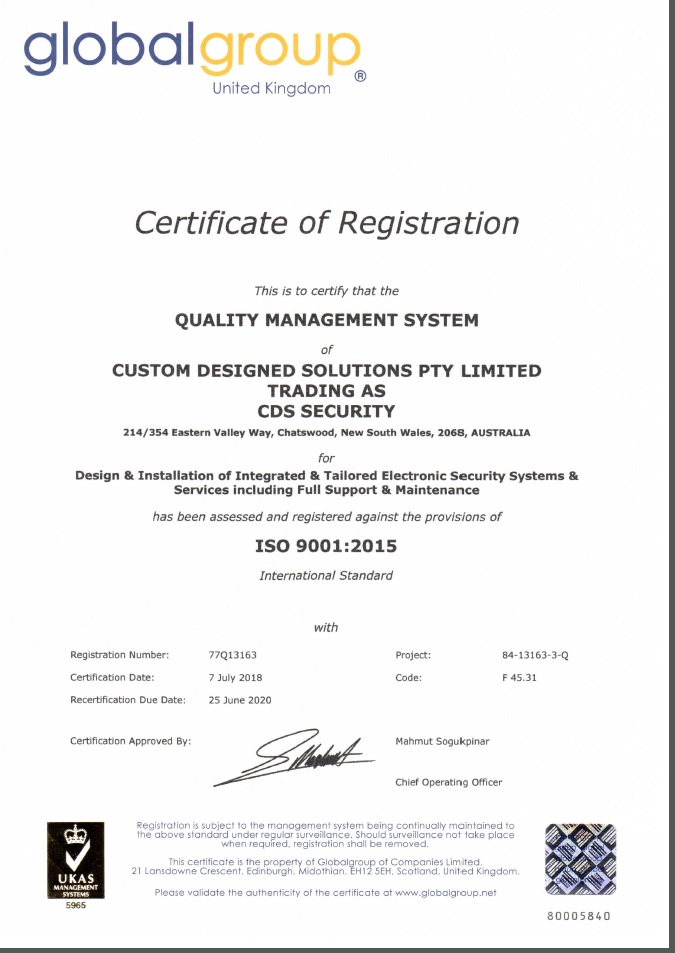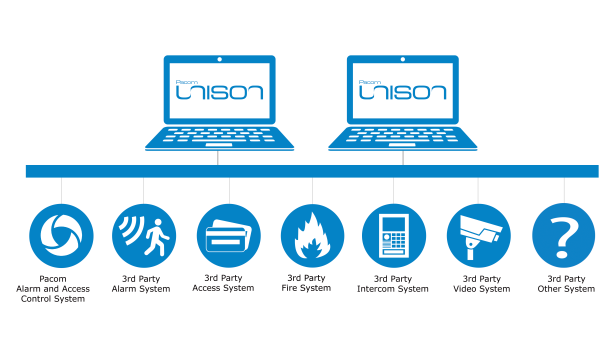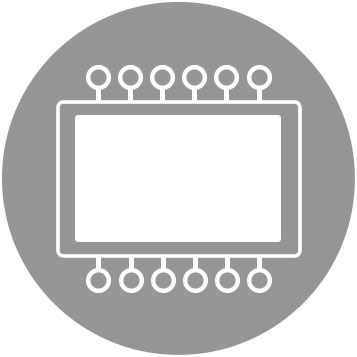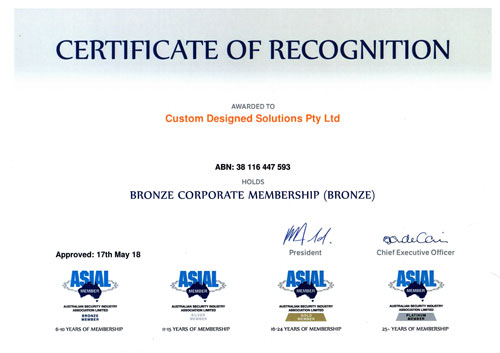Industry news
To help you assess the credentials of a security provider, here are nine things to consider:
1. Check the provider holds a current/valid security business license - Individuals and businesses providing security services in Australia are required to hold a security license. Applicants for a security license are subject to rigorous background checks which include fingerprinting to confirm their identity and a national criminal history check. 2. Adequate/current insurance cover – view documents and ensure they are current and provide coverage suitable to your requirements. 3. References – request and check references to obtain a valuable insight as to the reliability and performance of the security firm. ASIC and business search tools to check trading history can be very helpful. 4. Training – review the security firm’s training regime and request supporting documentation to support their assertions. 5. Equipment – ensure equipment to be provided by the security firm is fit for purpose and meets all work health and safety requirements. 6. Written contract – defining the rights and responsibilities of client and security provider should be detailed and written, including dispute resolution processes, contract review, extensions, and termination. 7. Management – experienced management personnel with specialist expertise in the security industry will ensure effective delivery and well trained and supervised staff. 8. Technician qualifications – you should request evidence that only appropriately licensed and trained personnel work on site. Licensing requirements vary from state to state. 9. ASIAL Membership – the ASIAL Member logo is a security provider’s mark of distinction. To become a member, a security company, whether large or small, has to meet the highest standards of quality and service.
Established in 1969, ASIAL is Australia's peak national security industry body, representing approximately 85 percent of the security industry in Australia.
If you would like to discuss your security needs, call us on 1300 858 237 or email service@cdssecurity.com.au. Many organization or facility be it a school, university, office, warehouse, hospital or even a residential building have a need to implement access control to its physical resources.
Access control involves identity verification as well as determination of the specific level of access an individual is allowed.
Smart cards have been used for many years now in access control solutions in each of the above scenarios. In offices, they provide a solution for access control as well as attendance management. In residential buildings they provide easy access to residents while keeping intruders from accessing resources like gyms, pools and mail rooms. They also provide an automatic audit history for every time any resource was accessed.
Flexibility, versatility and the inbuilt security features of smart cards have made them an irreplaceable feature of many access control systems.
While smart card technology has evolved over the years from magnetic strip cards to NFC based contactless smart cards, the principle involved is the same. A plastic card contains an embedded computer chip which can store data and/or instructions. In case of access control solutions, the data stored is unique for every user. The data can be read by the card reader which is usually installed at the entrance of the building / facility or on the equipment for which access needs to be controlled.
The reader reads the card data when the card comes into contact with the reader (in case of contact based smart cards) or when the card is brought near the reader (for contactless smart cards). The reader communicates this information to the access controller which carries out the required processing to grant or deny access. Thus, smart cards can be used to verify and grant access. Following are the additional advantages of smart cards in access control solutions.
Increase accountability: Every entry and exit is accounted for in a card access control system. The likelihood of fraudulent activities is reduced and these systems provide better data of in case of unexpected/unapproved movements. Ease of policy updates: Facility managers can easily apply policy updates applicable to various equipment, facilities or groups of people. This involves allowing or denying access and privileges to specific departments, rooms, equipment, facilities at specific time of the day, week or month. Protection against loss: Once a lost card is reported it can easily be cancelled in the system so that it cannot be used for fraudulent access by anyone else. Visitor management: Card based systems help in easy visitor management. Depending on the purpose of the visit, access can be granted to specific areas of the building or facility for a limited period of time. Providing insights: The information captured by the smart card system can be used to generate insights about resource usage which provides an opportunity to managers to better plan and utilize available resources or discard the ones which are not in use. Inexpensive: When ordered in bulk quantities, smart cards can be considerably cheap and affordable, thus reducing the overall cost of the solution. Integration: Smart cards may be easily integrated with smart phones or other wearables like wrist bands so that users can wear their keys/identity.
If you would like to discuss a Smart Card option for your security needs, CDS will be able to evaluate your needs and propose the most efficient and effective system for you.
If you would like to speak to us in regards to this, call us on 1300 858 237 or email service@cdssecurity.com.au. Inner Range have announced that after over 23 years of outstanding service to the security industry in Australia and many other regions, its Concept system is to be retired. The Concept product range will enter into the End of Life status from April 2019.
The successor to the Concept system is the Integriti System. Upgrading to Integriti can be completed cost effectively as 95% of the existing Concept equipment is compatible with Integriti, which means many Concept components do not need to be replaced.
If you would like to transition to the even more advanced platform of Integriti or find that your Concept system needs to be expanded, CDS Security will be able to help with an efficient transition. All our technicians are trained in the Integriti Advanced system and have experience in the installation of this system.
If you would like to speak to us in regards to this, call us on 02 9417 0880 or email service@cdssecurity.com.au.
CDS has been able to build strong relationships with many small and medium business’s in the Northshore area, with many Chatswood and Roseville business owners happy to have a local security firm. The convenience of being local means that CDS is able to respond promptly to requests for new security systems or upgrades. Installation of Access Control Systems, CCTV Security, Intercom Systems, and 24-Hour Monitoring are just some of the services CDS can offer.
Being local guarantees that CDS will interact with customers directly and be able to respond to requests promptly and efficiently. Our industry knowledge and training ensure that our clients can be assured that we are able to offer them the latest products and systems for their budget.
Please contact us for an obligation free quote at service@cdssecurity.com.au or call 1300 858 237. CM3 Certification is Australia’s leading Contractor OHS/WHS Prequalification system. CM3 addresses the need for contractors and organizations to demonstrate and maintain their health and safety management capabilities. By undertaking the relevant training and certification, CDS is able to demonstrate their Occupational Health and Safety standards to current and potential clients. By achieving CM3 certification, CDS has been able to review its current safety practices and improve its overall safety management processes.
SGS Australia, Formula Interiors and Colliers are just a sample of organizations that use the CM3 Certification processes. In today's world, social and community responsibility has become an important part not only in everyday life but also in business. CDS Security believes in building close relationships with the local community and was pleased to be able to help the 1st Sailors Bay Sea Scouts in their need for a security system. With the donation of an Alarm Panel and its installation at their headquarters in Castlecrag, the sea scouts are ensured that their equipment and premises are secured.
The 1st Sailors Bay Sea Scouts are a volunteer sporting and activity organisation that has over 70 members, with three youth sections ranging in age from 8 to 18 years.
1st Sailors Bay Sea Scouts is local to Castlecrag, but has its origins in 1st Chatswood Scouts which was formed in 1914 with the group splitting into Land and Sea Scouts in 1932. In 1979 1st Sailors Bay moved to its current premises at the old milk depot at 43 Eastern Valley Way.
Sea scouts are like other scouting groups, with the exception that most of their activities are based in and around water. Canoeing, kayaking, sailing, rafting and paddle boarding are just some of the water-based activities. Other scout activities such as camping, hiking, bush craft and rock climbing are also an integral part of their program. The Sea Scouts also attend many scout events during the year, such as Jamborees, Cuborees and Scout Hikes throughout Australia. CDS – ISO 9001:2015 Quality Management Systems certified
At CDS, we pride ourselves on our commitment to quality management systems. This is why we have undertaken accreditation from the International Organization for Standardization (ISO) for ISO 9001:2015. Senior management have made a commitment to ensure our organisation adheres to industry best practice and international standards.
This standard sets out the criteria for a Quality Management System (QMS) and is based on a number of principles including strong customer focus, motivated top management, taking a processed approach and continual improvement.
At the core of this standard is putting our customers first to ensure we consistently meet their needs. We’ve achieved this accreditation to ensure that customers receive consistent and good quality products and service. WHAT IS PACOM UNISON? PACOM Unison is an open and integrated security management solution which enables you to integrate and manage access control, intrusion detection, fire, video and intercom from a single intuitive user interface. Unison is ideal for a wide range of campus environments, including hospitals and healthcare applications, commercial environments, large retail spaces, public facilities, airports, correctional facilities, universities and schools. The Infiniti Class 5 system consists of a suite of products which, together provide all the elements necessary to meet the stringent requirements set out by the AS/NZS 2201.1:2007 Class 5 standard. Women in Security – Shifting the gender balance. CDS Security has participated in the Security Industry Associations Member Recognition Program. Tips for choosing the right security provider
The Role of Smart Cards in Access Control
Concept End of Life - move to Integriti
Local Security - Servicing the Northshore

CM3 Certification - OHS and WHS

Community Partnerships - CDS Security and 1st Sailors Bay Sea Scouts

ISO 9001:2015 Quality Management System certified

WHAT IS PACOM UNISON?

The Class 5 Encrypted System

Women in Security

ASIAL Bronze Member

